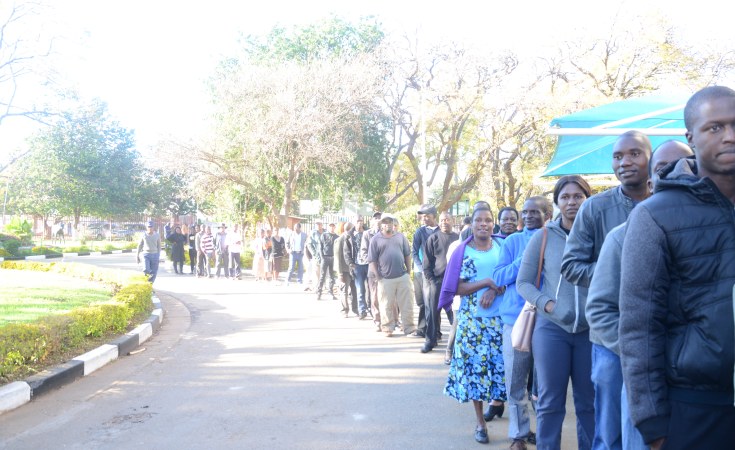Violence, vote buying, and outright bulldozing in politics have been cited as major factors contributing to the low turnout of women in this year's election after the country recorded a 3.4% drop in female candidates.
Nominated women for the National Assembly election have dropped from 14.4% in the 2018 polls to 11.0% in 2023 according to a nomination analysis fact sheet by Election Resource Centre (ERC).
Of the 566 candidates competing in this election, only 70 are women.
This year's election will feature 38 political parties and independents, United Alliance Zimbabwe emerged on top of the gender inclusion list with 29% of its candidates being women.
Zanu PF had the second highest number with 11% female parliamentary candidates.
Opposition Citizen Coalition for Change has 9% women representatives while the embattled MDC managed to field 4%.
CCC spokesperson Fadzayi Mahere attributed low women turnout in this year's election to the unsafe political environment in the country.
"When you are dealing with a dictatorship that operates in a violent and brutal way, politics in general will not be safe for Women," Mahere said.
"We all know what happened to what was known as the MDC trio, when women look at that they shy away from politics and there is nothing that CCC can do about it
"However we have a gender parity policy and you will see with our constituency seats that we are doing our best to give space to women who have the courage and the competence to stand."
Mahere added that once the reforms that empower women while creating a safer space are in place, more female candidates will participate.
Women's Academy for Leadership and Political Excellence (WALPE) said political parties were complicit in women's annihilation in politics.
"In their internal selection of candidates, political parties stand accused of vote-buying and bulldozing men ahead of women into wards and constituencies, a testament to the negative patriarchal tendencies of our society," WALPE said.
"This has left women to all scurry for the few seats available on PR. Political parties should not make empty promises about women's inclusion and gender parity which are not fulfilled."
Labour Economists and African Democrats president Linda Masarira said the lack of proper legislation that ensures women's rights in politics shows a lack of zeal by authorities to cater to gender inclusion.
"The women's drafted a Gender equality bill, which is before the cabinet awaiting approval. The laxity in approving this bill shows how Gender issues are not a priority in Zimbabwe.
"A Parliament with less than 50% women will be illegally constituted, it is a violation of the constitution either way," Masarira said.


